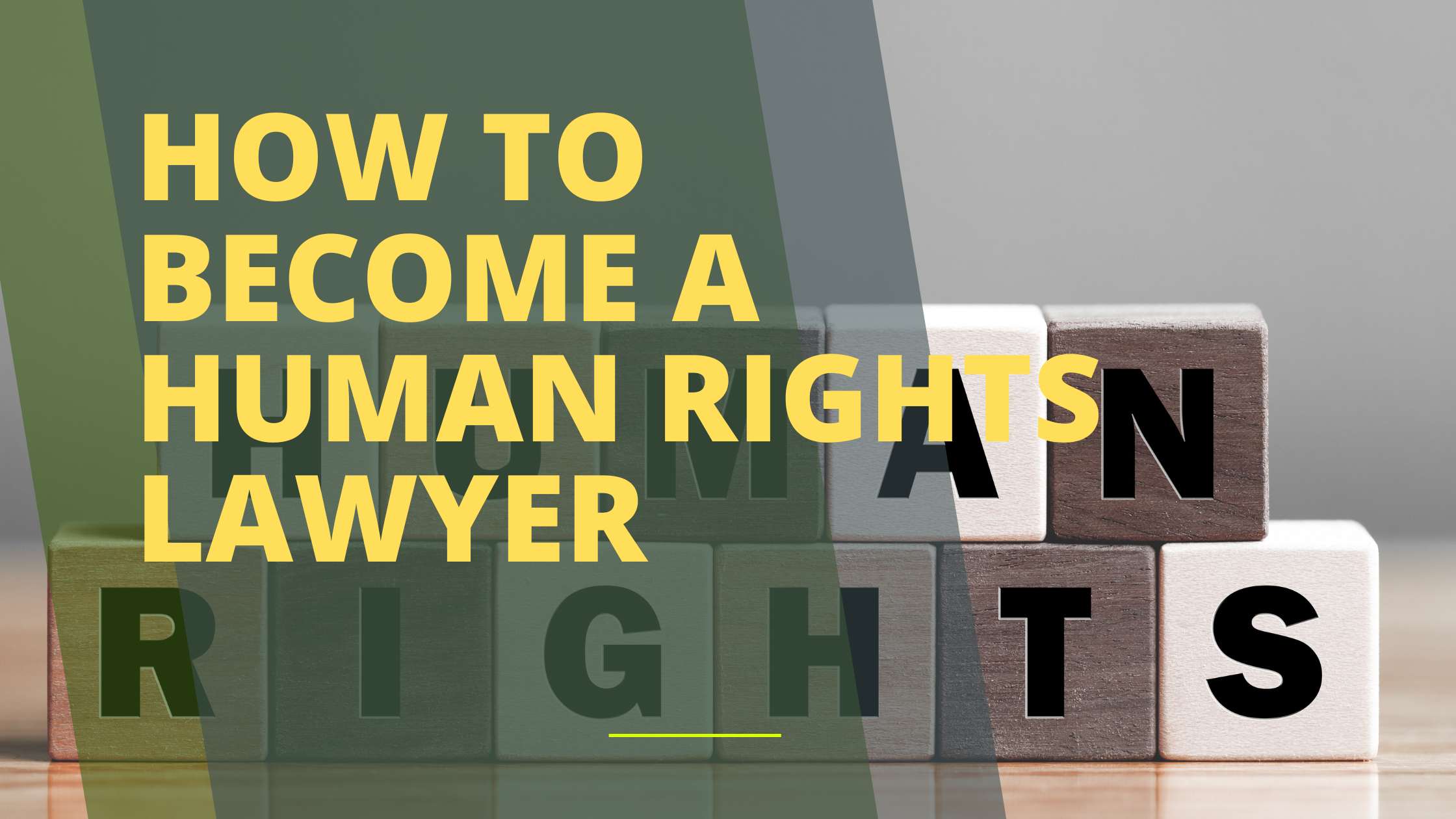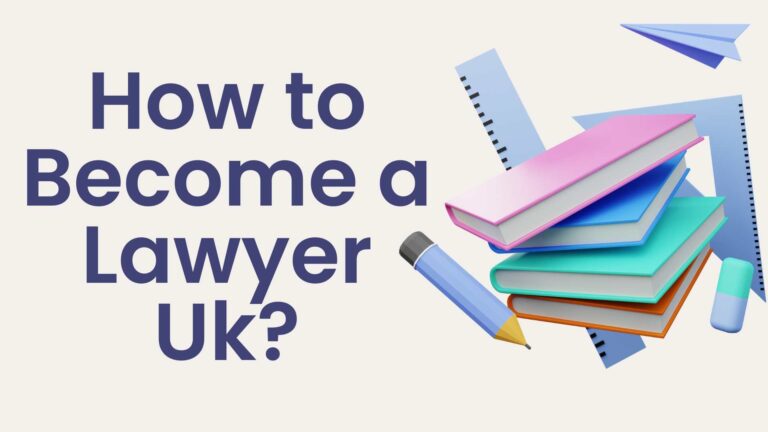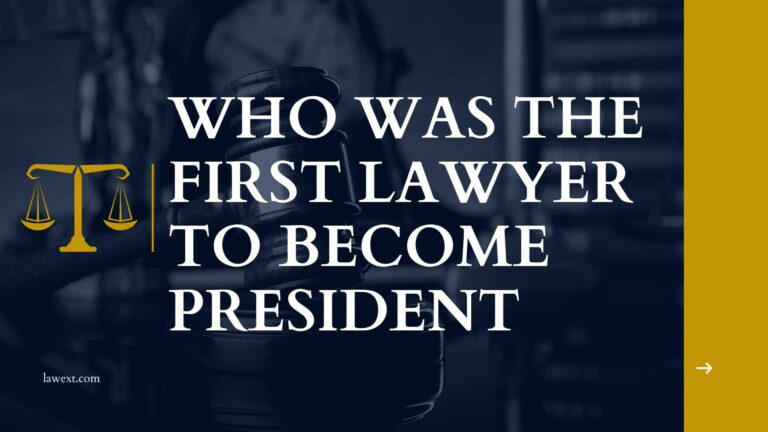How to Become a Human Rights Lawyer?

To become a human rights lawyer, obtain a law degree and specialize in human rights through further education and experience. Next, pass the bar exam in your jurisdiction.
Embarking on a career as a human rights lawyer is both challenging and deeply rewarding. This niche within the legal realm champions the protection and promotion of freedoms and rights globally. Aspiring human rights lawyers must commit to years of rigorous education, starting with an undergraduate degree, typically in a related field such as political science or philosophy.
After completing law school and earning a JD (Juris Doctor), specialization is crucial. Engaging in internships, clinics, or volunteering with human rights organizations can forge a path toward this advocacy-centric career. Developing expertise through additional certificates or a Master of Laws (LL. M. ) In human rights can further bolster one’s credentials. Each step toward this noble vocation is crucial in shaping a lawyer capable of defending human dignity in the face of injustice.
The Path Of Advocacy: Aspiring Human Rights Lawyers
The Path of Advocacy beckons those with a passion for justice. Aspiring human rights lawyers embark on a journey defined by courage, perseverance, and an unwavering commitment to upholding the dignity of every individual. It’s a path graced by relentless advocates who voice the silent and challenge injustices worldwide.
Defining Human Rights Law
At its core, human rights law is the body that safeguards basic human freedoms. It encompasses international treaties, agreements, and judicial decisions. Students explore cases of inequality, discrimination, and violation of fundamental rights. Strong foundations in these areas shape impactful human rights lawyers.
Traits Of Successful Human Rights Lawyers
- Empathy: A deep understanding of others’ feelings guides their work.
- Resilience: They stand unwavering in the face of setbacks.
- Advocacy Skills: Powerful speaking and writing promote justice.
- Commitment: Long hours and challenging cases require dedication.
- Critical Thinking: Analyzing complex issues underpins their strategies.

Credit: www.wikihow.life
Educational Foundation: Starting Your Journey
Becoming a human rights lawyer starts with the right educational foundation. It involves years of study, dedication, and a deep understanding of justice and equality. Aspiring lawyers must navigate through a structured educational pathway that begins with an undergraduate degree, followed by law schooling, and real-world training through internships and volunteering.
Undergraduate Degree Choices
A strong foundation in the field of law begins at the undergraduate level. Choosing the right degree is crucial for your future career in human rights law. Although there’s no specific degree required, certain disciplines can provide a useful background.
- Political Science develops understanding of government systems.
- International Relations offers global perspectives on law.
- Sociology examines societal structures and issues.
- Humanities foster critical thinking and ethics.
These subjects lay a strong groundwork for your law studies. They help you develop critical skills needed to succeed as a human rights lawyer.
The Role Of Internships And Volunteering
Real-world experience is invaluable in the human rights field. Internships and volunteering open doors to practical learning and networking opportunities.
| Experience Type | Benefits |
|---|---|
| Internships | Gain hands-on experience, mentorship, and career insight |
| Volunteering | Shows commitment to human rights, builds empathy and understanding |
Internships with law firms, NGOs, and international organizations help you apply classroom knowledge in real legal settings. Volunteering with community groups or activist organizations exposes you to the realities of human rights work. Both experiences are essential stepping stones on your journey to becoming a human rights lawyer.
Law School And Specialization
Embarking on a journey to become a human rights lawyer is a noble and challenging path. This specialization requires not only a passion for justice and equality but also a solid foundation in law, shaped by the choices you make during law school. The law school you attend, your focus areas, and your practical experiences are crucial in defining your career in human rights law.
Choosing the Right Law School
Choosing The Right Law School
Law schools vary in their programs and opportunities. Selecting one that aligns with your career goals in human rights is vital. Consider schools known for strong human rights programs and those with active human rights clinics.
- Research faculty expertise and courses offered.
- Look for law schools hosting human rights events and conferences.
- Check if the school offers internships or externships in the human rights field.
Focus Areas in Human Rights Law
Focus Areas In Human Rights Law
Human rights law encompasses various sectors. Deciding on a specific focus area enhances your expertise and employability. Key focus areas include:
- Children’s rights
- Refugee and asylum law
- Gender equality
- International humanitarian law
Practical Experience During Law School
Practical Experience During Law School
Gaining real-world experience while in law school is pivotal. Involvement in clinics, moot court competitions, and internships provides hands-on learning.
- Join human rights clinics to work on actual cases.
- Participate in moot court competitions focusing on human rights issues.
- Secure internships with NGOs, international organizations, or human rights law firms.

Credit: www.humanrightscareers.com
Beyond The Degree: Gaining Real-world Experience
Becoming a human rights lawyer involves more than just academic study. Real-world experience plays a critical role in shaping a competent and compassionate lawyer who can truly make a difference. Engaging intensely with the practical side of law after academic education is indispensable. Here’s how to gain that invaluable on-the-ground experience.
Clerkships And Fellowships
Clerkships provide a window into the judicial process. They offer exposure to high-level legal proceedings and thinking.
- Application: Target courts with a strong human rights docket.
- Research: Identify judges known for human rights advocacy.
- Network: Connect with alumni and professors to learn about opportunities.
Fellowships allow for deeper engagement in human rights issues. Fellowships can take you across the globe or enable you to work with leading advocacy groups.
- Scope: Fellowships vary from research projects to fieldwork.
- Duration: They can last from a few months to several years.
- Impact: They contribute significantly to both personal growth and professional development.
Working With Non-governmental Organizations (ngos)
NGOs are at the forefront of human rights battles. They value legally trained minds for various roles.
- Volunteering: Start with volunteer positions to enter this sector.
- Internships: Pursue internships for a closer look at human rights advocacy.
- Advocacy: Engage in activities such as reporting, direct aid, and policy making.
The Importance Of Pro Bono Work
Pro bono cases provide hands-on experience while serving the underprivileged.
- Networking: Builds connections with clients, attorneys, and judges.
- Skill Development: Enhances professional skills like client interviews and courtroom practice.
- Community Service: Satisfies the ethical responsibility of giving back to the community.
Building A Career In Human Rights Law
Building a career in Human Rights Law is akin to preparing for a marathon, not a sprint. It demands a combination of passion, education, and real-world experience. Aspiring lawyers with a drive to make a difference in the world can find a rewarding career in this field. The journey involves multiple steps, such as pursuing the right education, gaining experience, and fostering professional relationships. Below we provide insights into various aspects of advancing within this noble profession.
Navigating The Job Market
Finding employment in human rights law requires a strategic approach. Graduates should aim for roles that align with their interests and values. Opportunities may range from nonprofit organizations to international bodies.
- Research diligently: Identify organizations that champion causes you are passionate about.
- Prepare a standout resume: Highlight relevant education, internships, and volunteer work.
- Customize applications: Tailor cover letters to the mission and values of potential employers.
Continuing Education And Certifications
Staying abreast of legal developments is critical for human rights lawyers. Continuing education ensures expertise remains sharp and relevant.
- Attend workshops: They provide new insights and practical skills.
- Enroll in advanced courses: Specialized programs can deepen understanding of human rights law.
- Pursue certifications: Certificates from recognized institutions can enhance credentials.
The Significance Of Networking And Mentorship
Creating strong professional connections is vital. Networking can lead to job offers, project collaboration, and personal growth.
| Networking | Mentorship |
|---|---|
| Attend conferences | Seek experienced lawyers |
| Join human rights organizations | Build a relationship for guidance |
| Engage in online forums | Learn from their career paths |
Through hard work, continuous learning, and strategic networking, a career in human rights law not only becomes attainable but also highly fulfilling.
Key Challenges And Achievements
Becoming a human rights lawyer means facing tough challenges while working towards meaningful milestones. From navigating complex legal systems to celebrating landmark case victories, this career is full of highs and lows. Let’s delve into the ethical dilemmas these lawyers often encounter and highlight some remarkable human rights accomplishments.
Ethical Dilemmas In Human Rights Cases
Human rights lawyers often grapple with ethical issues. They must balance the law with moral beliefs. Each choice carries weight, affecting lives and broader societal norms. Below are some dilemmas they may face:
- Representing clients against oppressive regimes
- Navigating conflicts between cultural practices and universal rights
- Ensuring unbiased advocacy for all, regardless of personal beliefs
Notable Human Rights Cases And Milestones
Celebrated victories shine a light on the influence of human rights advocates. Cases and milestones often become historical touchstones that shape our world. Some noteworthy achievements include:
| Year | Case/Milestone | Impact |
|---|---|---|
| 1948 | Universal Declaration of Human Rights | Foundation for global rights standards |
| 1954 | Brown v. Board of Education | Ended racial segregation in US schools |

Credit: www.juriseducation.com
Conclusion
Embarking on a career as a human rights lawyer is a noble pursuit. Through dedication, rigorous education, and hands-on experience, you can make a tangible difference. Remember to stay informed about global issues and network with professionals. Your advocacy has the power to change lives and uphold justice.
Keep striving; the world needs your passion.
Introducing Jonah Plum, a legal luminary whose journey through the corridors of justice has been intertwined with the eloquence of the written word. Born and raised in the vibrant city of Seattle, Washington, Jonah's early fascination with language and debate laid the foundation for a remarkable career in law.
Jonah's scholarly odyssey began at Harvard Law School, where they immersed themselves in the study of jurisprudence, honing their analytical prowess and legal acumen. Armed with a law degree, they entered the legal arena, navigating courtrooms and boardrooms with a fervor for justice. Yet, it was the realization of the transformative power of the written word that led Jonah to pivot from legal briefs to the world of blogging.
A digital advocate in the truest sense, Jonah recognized the need for demystifying legal concepts and making them accessible to a broader audience. This blog, a virtual repository of legal insights, transcends geographical boundaries, connecting with a global readership hungry for clarity amidst legal complexities.
Beyond the black letter of the law, Jonah delves into the human stories that underscore the legal landscape. Their writing goes beyond legal analysis, weaving narratives that humanize the law, shedding light on its impact on individuals and society.






